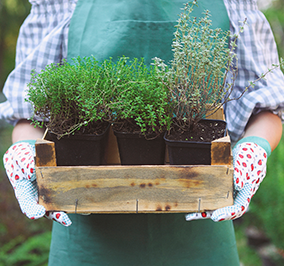We all know people who have attended a webinar or meeting and wanted to raise their hand to ask a question — but didn’t. Why didn’t they? It was probably because they worried their question would sound silly, or they were embarrassed.
But as many teachers have told their students over the years, “There is no such thing as a dumb question.”
How true.
In fact, when you think about it, asking a question is about the smartest thing you can do. Asking questions helps you get the information you need to make better decisions.
For example, say you want to know the best season to sell your property. If you don’t ask — because you assume you should know — you may never get a clear answer. At least, not without a lot of time-consuming Google-ing.
So, when you have a real estate-related question, who should you ask?
Me.
Feel free to call or email whenever you have questions about current selling prices, mortgages, market conditions, moving – or anything real estate-related. When you call me, any question you ask will be smart!

But as many teachers have told their students over the years, “There is no such thing as a dumb question.”
How true.
In fact, when you think about it, asking a question is about the smartest thing you can do. Asking questions helps you get the information you need to make better decisions.
For example, say you want to know the best season to sell your property. If you don’t ask — because you assume you should know — you may never get a clear answer. At least, not without a lot of time-consuming Google-ing.
So, when you have a real estate-related question, who should you ask?
Me.
Feel free to call or email whenever you have questions about current selling prices, mortgages, market conditions, moving – or anything real estate-related. When you call me, any question you ask will be smart!
Understanding Market Value

When you decide to put your house up for sale, we will start by working together to determine the market value of your property. That’s important to know because if you price your home too much above its market value, you probably won’t get any offers. Alternatively, if you price your property too low, it might get snapped up quickly, but you’ll have left a lot of money on the table.
So how do we determine your home’s current market value?
We will look at a variety of factors, such as the desirability of the neighbourhood, the features of your home, how well it has been maintained, renovations and other improvements you’ve made, and of course, its location. We will also review what similar homes in your area have sold for recently – which is, perhaps, the strongest indicator of current market value.
Once we know the market value of your home, we can make an informed decision as to how to price it so that it will attract the right type of buyers and the best possible price.

That’s just good old-fashioned marketing.
However, not every house you see will actually look this way. For any number of reasons, a house on the market may be less than tidy, poorly decorated, and even in need of minor repairs. You may open the front door in anticipation, only to be immediately turned off by stains on the carpets, faded paint on the walls, cluttered hallways, and more.
First impressions form quickly. It’s easy to make quick judgments and move on. But, you may be passing on what could be a dream home. Don’t make that mistake. Make your purchase decision based on a carefully considered second impression, not just your first. When viewing a house, imagine how it will look with a fresh coat of paint, some redecorating, the minor repairs completed, and your furniture adorning the rooms. You might just find that a home that doesn’t show well is really a diamond in the rough.
(One caveat: Be careful of houses that don’t look like they’ve been well maintained. There could be issues lurking that may require expensive repairs or renovations. Always make a professional home inspection a condition of your offer.)
There are advantages to buying a home that doesn’t show well. They attract less interest and, therefore, less competition from other potential buyers.

Whether you are interested in nurturing beautiful blooms and bushes, or cultivating home-grown herbs and vegetables, a little planning will give you lasting enjoyment. One of the first things you need to do is to identify your microclimate in order to determine its suitability for growing specific plants.
Similarly, it’s important to know the hardiness of your preferred plants, and how much sun and shade they require. Make sure your soil is conducive for optimum growth and supplement with appropriate nutrients as needed. Be prepared to back up nature’s rainfall with a reliable source of supplementary water, either manually or through an automatic system. Now that you’ve done your prep work, the true pleasures of gardening begin – but don’t think it’s an easy hobby! It takes hard work to keep the weeds at bay and your garden on track, but you’ll see the fruits of your labour grow before your very eyes.
Once we know the market value of your home, we can make an informed decision as to how to price it so that it will attract the right type of buyers and the best possible price.
When to Consider Buying a “Diamond in the Rough”

Let’s face it. When you visit a home during a scheduled viewing or open house, you’re usually seeing it at its best. The rooms are tidy. The sinks are clean. The closets are organized and uncluttered. Even the lighting is set to its brightest.
That’s just good old-fashioned marketing.
However, not every house you see will actually look this way. For any number of reasons, a house on the market may be less than tidy, poorly decorated, and even in need of minor repairs. You may open the front door in anticipation, only to be immediately turned off by stains on the carpets, faded paint on the walls, cluttered hallways, and more.
First impressions form quickly. It’s easy to make quick judgments and move on. But, you may be passing on what could be a dream home. Don’t make that mistake. Make your purchase decision based on a carefully considered second impression, not just your first. When viewing a house, imagine how it will look with a fresh coat of paint, some redecorating, the minor repairs completed, and your furniture adorning the rooms. You might just find that a home that doesn’t show well is really a diamond in the rough.
(One caveat: Be careful of houses that don’t look like they’ve been well maintained. There could be issues lurking that may require expensive repairs or renovations. Always make a professional home inspection a condition of your offer.)
There are advantages to buying a home that doesn’t show well. They attract less interest and, therefore, less competition from other potential buyers.
Is this your Year to Get Gardening?

Whether you have a large backyard or a modest balcony, gardening is fast becoming one of the most popular pastimes across the land. Homeowners have become more focused on their property’s appearance and productivity, while also recognizing how gardening can contribute to a healthy lifestyle.
Whether you are interested in nurturing beautiful blooms and bushes, or cultivating home-grown herbs and vegetables, a little planning will give you lasting enjoyment. One of the first things you need to do is to identify your microclimate in order to determine its suitability for growing specific plants.
Similarly, it’s important to know the hardiness of your preferred plants, and how much sun and shade they require. Make sure your soil is conducive for optimum growth and supplement with appropriate nutrients as needed. Be prepared to back up nature’s rainfall with a reliable source of supplementary water, either manually or through an automatic system. Now that you’ve done your prep work, the true pleasures of gardening begin – but don’t think it’s an easy hobby! It takes hard work to keep the weeds at bay and your garden on track, but you’ll see the fruits of your labour grow before your very eyes.